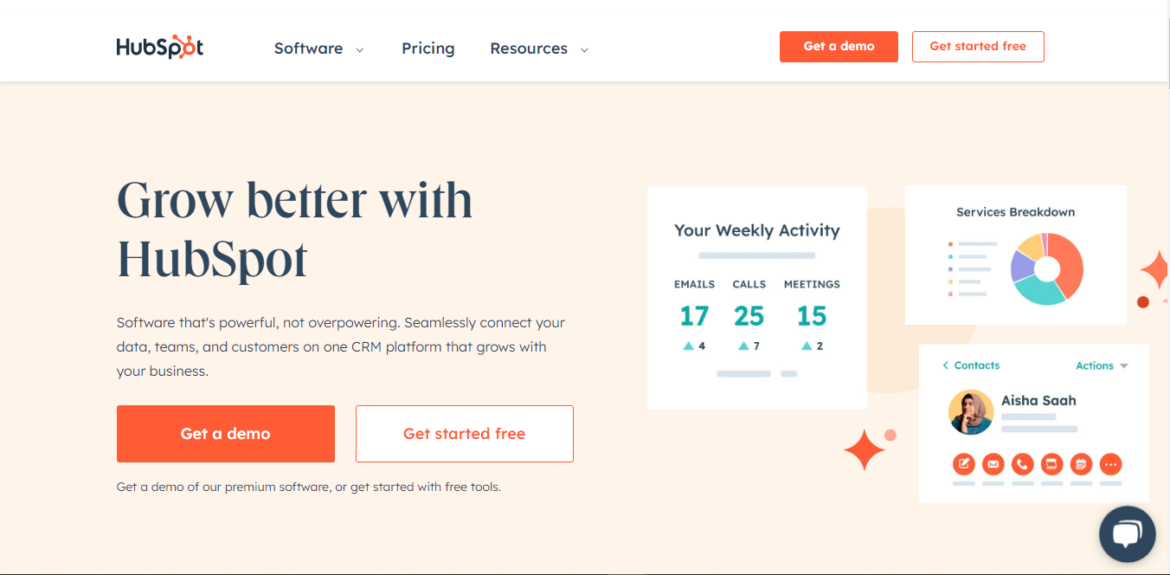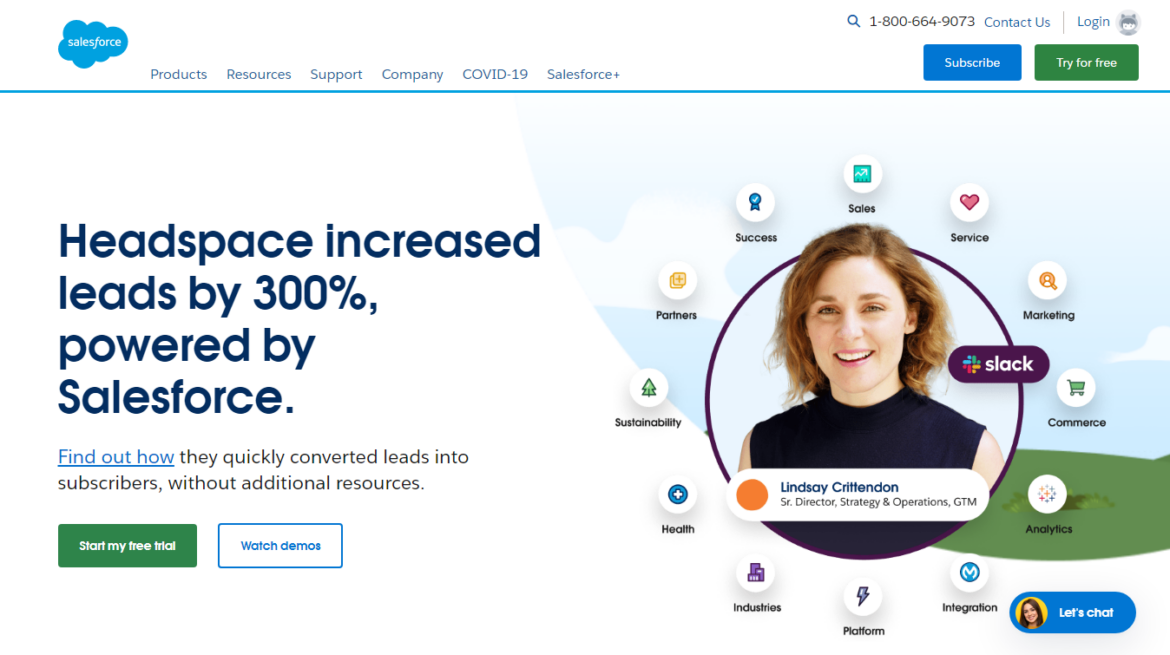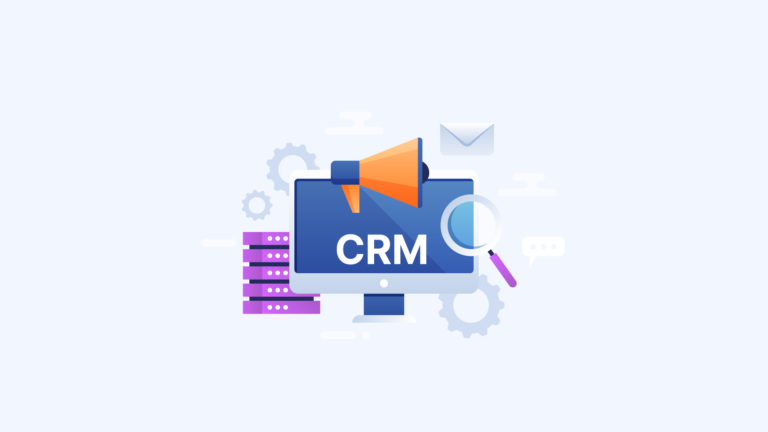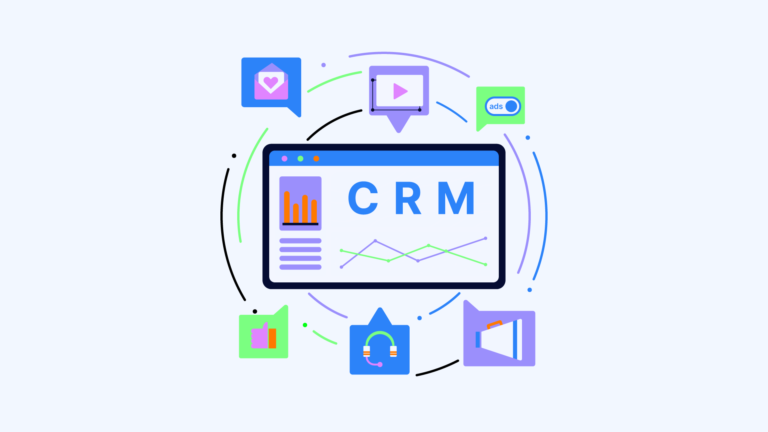|
Getting your Trinity Audio player ready...
|
In the dynamic landscape of modern businesses, fostering strong customer relationships is paramount for success. Customer Relationship Management (CRM) systems have revolutionized the way organizations manage and interact with their customers. At the core of this transformation lies the CRM database, a powerful tool that empowers businesses with data-driven insights to enhance customer experiences, streamline operations, and drive growth.
Customer relationship management databases, or CRMs, are powerful tools for businesses who want to capitalize on customer data. By automating sales processes and offering access to critical customer information, a CRM can make managing relationships with customers simpler and easier.
Many modern CRM options are cloud-based, helping teams to stay connected no matter where they’re located. With an effective CRM system in place, companies enjoy multiple benefits such as automated workflows (including emails and tasks) tailored specifically to their business model
- omnichannel marketing capabilities (the ability to track customer interactions across different platforms)
- analytics features to measure sales performance
- customer segmentation (allowing them to focus marketing efforts on highly targeted audiences); a
- An intuitive user experience.
With these benefits at your fingertips, you’ll quickly understand why so many tech-savvy businesses integrate a CRM database into their operations.
This blog has all you need to know about CRM databases, what they do, how they work, and where they can benefit your business.
What is a CRM Database?
A CRM database is an essential tool for businesses to keep track of their customers and build strong relationships. A CRM database allows teams to store, process, and connect all customer-related data in one place.
This enables teams to have a single source of truth when it comes to understanding and servicing customers. It serves as a central hub where contact profiles are created and updated with key information like past purchases, support requests, website visits, emails sent or received, contact history, interests and more.
CRMs also allow teams to log daily interactions with the customer, timestamps included. You can use your CRM database to view each contact’s timeline of interactions with the company. You can also use this system to set up automated emails or sales campaigns that target particular customers who meet certain criteria.
CRM platforms enable staff to access customer data from any supported device, thus facilitating the retrieval of pertinent information and promoting collaboration on new sales and marketing initiatives. You can now obtain information without having to physically approach a colleague. It can be found in your CRM.
Why you Might Need a CRM Database
Here are some examples of why you may need to use a CRM database:
Lead management
There are a number of things that companies should consider when evaluating if a CRM solution is right for their business. First, does the business need help with lead management?
CRM can be very helpful for companies that have a high volume of leads, because it creates timelines for each contact that are easy to track. CRM also allows companies to set automatic reminders for each contact so prospects are assigned to specific salespeople and nothing slips through the cracks.
Long, complex sales cycles
A sales CRM can be useful for organizations with sales leads that have multiple touchpoints within a company or have long, complex sales cycles.
A CRM system can assist companies in avoiding duplicative work and inconveniencing leads by providing a comprehensive view of the customer, ensuring that sales, support, and product teams are not requesting the same information multiple times.
By having a 360-degree view of each customer, sales representatives can personalize their interactions, creating a more engaging and satisfying experience for clients.
Siloed customer data
Data-driven companies can benefit greatly from considering a CRM database. By consolidating a company’s data sources, CRM enables the generation of comprehensive reports on various aspects of the business, including sales projections and customer satisfaction metrics such as Net Promoter Scores℠ and CSAT.
One of the most significant advantages of CRM databases is their ability to provide data-driven insights for strategic decision-making.
Businesses can analyze trends, identify growth opportunities, and spot potential challenges by harnessing the power of data. These insights empower executives and managers to make informed choices that align with the company’s objectives, leading to better overall performance.
Marketing automation
CRM solutions are beneficial for companies that are interested in running marketing automation, such as email marketing campaigns.
CRM software enables businesses of all sizes and industries with various functionalities such as sending newsletters, managing customer databases, and implementing advanced segmentation for personalized marketing campaigns.
How Data is Sorted in a CRM
Data sorting is a critical task in the world of CRM databases. Its main purpose is to create uniformity out of different types of data and organize it into specific categories, allowing businesses to better understand their customers and tailor their sales and marketing approaches. This is done by analyzing various data pipelines, such as ecommerce transaction databases containing invaluable information about customer purchases, service interactions, and contact history.
These categories are used to further segment the customer base into distinct groups that possess individual characteristics. From there companies can accurately target their messaging based on purchase behaviors and potential areas of interest – upping conversion rates and improving customer retention rates.
Three common CRM data categories include demographics (age, gender etc.), marketing preferences (example: email frequency), and purchase behavior (timing, amounts etc.). Having an efficient system for data sorting can be the difference between success or failure for businesses looking to optimize their sales process.
Here are CRM database examples and how they handle data:
Operational CRM
Operational customer relationship management (CRM) is an integral component of any successful business. It provides the necessary data and tools to help teams understand their customers, drive sales, and provide optimal customer service. This data includes information about customers’ preferences, behavior, interests, locations, past interactions with the company, and more.
By leveraging this data in a comprehensive manner that goes beyond conventional data entry or manual analysis of individual interactions with customers, operational CRM can provide insights into key aspects of operations such as customer segmentation and retention.
Teams can use operational CRM to quickly assess the current situation within their organization’s sales or support pipeline in order to gain a better understanding of which strategies are most successful in engaging potential leads and acquiring new customers. With faster access to customer records and increased flexibility in the ways that teams can respond quickly to changing needs within the customer base, organizations are able to increase their overall efficiency and profitability over time.
Analytical CRM
Analytical CRM data is used to gain insight into customer behavior and streamline business processes. By leveraging data analytics, companies are able to create personalized experiences for their customers, predict their needs, identify sales opportunities and develop better marketing strategies.
Understanding the relationship between various data points or data types is key in order to measure customer lifecycle values, track customer attrition, optimize sales processes, identify revenue generating opportunities and shape overall corporate strategy.
Analytical CRM also allow businesses to anticipate customer needs based on analysis of real-time customer interactions and historical trends. By focusing efforts on targeted segments with higher profitability potential that can be identified through analytical CRM insights, companies can improve product offer offers that fit the exact needs of each group.
In addition to this Optimization of communication channels which involve analyzing past interaction data also allows for efficient utilization of resources both human as well as financial. Predictive segmentation enables companies to personalize marketing campaigns by targeting specific audiences with relevant content thus boosting engagement rates and increasing ROI for all digital marketing efforts.
Collaborative CRM
Collaborative Customer Relations Management (CRM) is quickly revolutionizing the way businesses operate. This tool is designed to help businesses keep track of their customers across numerous platforms, such as social media, email support and sales.
By creating a unified platform where customer information is accessible by anyone in the business, team members can quickly complete key tasks without needing to fill in the blanks for previous purchases or problems. In this way, it helps ensure that customers do not have to explain their history every time they get in touch with your company.
Collaborative CRM tools are able to be adapted for multiple types of data pipelines; whether you need one that’s setup for specific types of data or a broader spectrum of internal tracking needs.
For example, some of these programs are great at understanding and learning from data about purchases, website behaviour and even loyalty program goals. Ultimately this gives your company an extra edge to stay ahead when it comes customer relations while helping staff focus on tasks which generate value for both parties involved – instead of wasting too much time gathering important information about customers from different sources.
Elements of building a CRM Database?
A Customer Relationship Management (CRM) database serves as the backbone of CRM systems, enabling organizations to develop deeper insights into their customers, enhance interactions, and make data-driven decisions.
To build an effective CRM database, several core elements should be considered and implemented.
Let’s explore each element in detail:
People Management
Effective CRM begins with comprehensive people management. This element involves creating profiles for each customer, prospect, or lead in the database. These profiles should encompass essential information such as names, contact details, job titles, and any other relevant data points. Additionally, a CRM database should allow segmentation based on various criteria, enabling businesses to target specific groups and tailor their interactions accordingly.
Contact Management
Contact management is closely related to people management but focuses specifically on maintaining accurate and up-to-date contact information. It involves features like contact synchronization, de-duplication (preventing duplicate entries), and integration with communication channels (e.g., email, phone, social media). A robust contact management system ensures that communication with customers and leads remains seamless and efficient.
Lead Management
Leads are potential customers who have expressed interest in a company’s products or services. An effective CRM database should facilitate lead tracking and management. This includes capturing leads from various sources, assigning them to the relevant sales representatives, and monitoring their progress through the sales funnel. Lead scoring, a technique that assigns values to leads based on their potential, is also valuable for prioritizing follow-ups.
Customer Service
Customer service is a critical component of any CRM strategy. A CRM database should allow service teams to log customer interactions, track support tickets, and manage inquiries efficiently. Access to a customer’s history within the CRM enables support agents to provide personalized and timely assistance, leading to improved customer satisfaction and loyalty.
Customer Service
Marketing automation streamlines repetitive marketing tasks and enables businesses to nurture leads and engage with customers at scale. Within a CRM database, marketing automation tools can be utilized to create targeted email campaigns, schedule follow-ups, and deliver personalized content based on customer behaviors and preferences. This element enhances efficiency and consistency in marketing efforts.
Reporting and Analytics
Data-driven decision-making is only possible with robust reporting and analytics capabilities. A CRM database should offer intuitive reporting tools that provide insights into key performance metrics, sales pipelines, customer behavior, and marketing campaign effectiveness. Customizable dashboards and visualizations aid in understanding trends and identifying areas for improvement, empowering businesses to optimize their strategies.
The core elements of building a CRM database are interrelated and crucial for creating a customer-centric ecosystem within an organization. By effectively managing people, contacts, leads, and customer service, and by leveraging marketing automation and data-driven insights through reporting and analytics, businesses can foster stronger customer relationships, enhance operational efficiency, and achieve sustainable growth. Implementing these core elements lays the foundation for a successful CRM strategy that yields long-term benefits for businesses of all sizes.
Tools Needed to Create a CRM Database
Creating a custom customer relationship management (CRM) database from scratch requires more than basic software engineering skills. You’ll need to invest in expensive onsite servers to host your database, and have a team of qualified IT professionals to adminstrate the service and develop features as necessary. To ensure that customer data remains secure, your team will also need to handle security measures with care.
Fortunately, popular CRM database software packages already exist that can serve the needs of businesses at varying sizes and scopes. Many companies opt for purchasing and installing licenses of CRM software off the shelf, while others customize open source databases or use cloud-based CRMs tailored to their unique needs. Engaging with service providers who specialize in this area is highly recommended if you do not have adequate knowledge about setting up such a system yourself.
What are the Benefits of a CRM Database
A CRM (Customer Relationship Management) database offers a plethora of benefits to businesses of all sizes and across various industries. Let’s explore some of the key advantages of implementing a CRM database:
- Enhanced Customer Relationships: CRM databases centralize all customer-related data, enabling businesses to gain a 360-degree view of their customers. This comprehensive understanding allows for personalized interactions, improved customer service, and better relationship management. As a result, businesses can build stronger, long-lasting relationships with their customers, leading to increased loyalty and retention.
- Improved Customer Service: CRM databases streamline customer service processes by providing support teams with quick access to customer information, including past interactions, purchase history, and preferences. This facilitates faster and more efficient issue resolution, leading to higher customer satisfaction and a positive brand reputation.
- Efficient Lead Management: With a CRM database, businesses can track and manage leads effectively. Automated lead scoring and nurturing features help prioritize high-potential leads and guide them through the sales funnel. This enhances the sales team’s productivity and improves conversion rates.
- Better Sales Management: CRM databases enable sales teams to stay organized and focused. They can track leads, monitor sales activities, and forecast sales opportunities more accurately. The system can also automate repetitive tasks, allowing sales representatives to spend more time on selling and building relationships.
- Increased Marketing Effectiveness: CRM databases enable targeted marketing efforts. By segmenting customers based on preferences and behaviors, businesses can create personalized marketing campaigns that resonate with specific audiences. Marketing automation features facilitate timely follow-ups and personalized content delivery, leading to higher engagement and conversion rates.
- Centralized Data and Collaboration: With a CRM database, all customer data is stored in a single, accessible location. This promotes collaboration across departments, as teams can share insights, track customer interactions, and collaborate on strategies to improve customer experiences.
- Data-Driven Decision Making: CRM databases provide valuable insights through reporting and analytics. Businesses can analyze customer trends, identify patterns, and make data-driven decisions to optimize their operations and marketing efforts. This helps in identifying areas for improvement and capitalizing on growth opportunities.
- Increased Productivity and Efficiency: Automation features within a CRM database reduce manual tasks, such as data entry and lead tracking, freeing up employees’ time for more value-added activities. This boost in productivity leads to better resource allocation and improved overall efficiency.
- Customer Segmentation and Personalization: CRM databases allow businesses to categorize customers into different segments based on demographics, behaviors, and purchase history. This segmentation enables targeted marketing and personalized communication, catering to the unique needs and preferences of different customer groups.
- Scalability and Growth: As businesses expand and acquire more customers, a CRM database can easily scale to accommodate growing data and user requirements. The system can adapt to evolving business needs and support the company’s growth journey effectively.
By leveraging the potential of a CRM database, businesses can gain a competitive edge and position themselves for long-term success in a customer-centric market.
Popular CRM Databases
Customer relationship management systems empower businesses to manage customer interactions, streamline processes, and drive growth.
In the market, there are numerous CRM solutions available, but some have emerged as particularly popular and widely adopted.
Let’s take a closer look at four of the most popular CRM databases:
1. HubSpot

HubSpot is a leading CRM platform that offers a comprehensive suite of marketing, sales, and customer service tools. Known for its user-friendly interface and all-in-one approach, HubSpot allows businesses to manage contacts, track deals, and automate marketing campaigns seamlessly.
The CRM is designed to centralize customer data and facilitate personalized interactions at every stage of the customer journey. It also integrates with other HubSpot tools like marketing automation and customer service, making it a favorite for small to mid-sized businesses seeking an integrated solution for sales and marketing teams and customer support.
Key Features of HubSpot:
- Contact and lead management
- Deal tracking and pipeline management
- Marketing automation
- Customer service ticketing
- Email tracking and templates
- Reporting and analytics
2. Salesforce

Salesforce is one of the pioneers in the CRM industry and remains a dominant force with its cloud-based CRM platform. Renowned for its scalability and customization options, Salesforce caters to businesses of all sizes, from startups to large enterprises.
Its CRM solution provides a wide array of features and modules, enabling organizations to manage their sales, marketing, and customer service operations efficiently. Salesforce’s AppExchange offers a vast marketplace of third-party CRM integrations, allowing businesses to extend the CRM’s capabilities to suit their unique needs and improve customer loyalty.
Key Features of Salesforce:
- Sales Cloud for lead and opportunity management
- Service Cloud for customer support
- Marketing cloud for marketing automation
- Customizable dashboards and reports
- Workflow automation
- Mobile app for on-the-go access
3. Zoho CRM
Zoho CRM is part of Zoho’s comprehensive suite of business software. It is known for its affordability and ease of use, making it an attractive choice for small and medium-sized businesses. Zoho CRM offers a range of features to manage sales, marketing, customer support, and inventory.
The platform is highly customizable, allowing businesses to tailor it to their specific requirements. With seamless integration with other Zoho applications and third-party services, Zoho CRM is a versatile option for businesses looking to optimize their sales and customer management processes.
Key Features of Zoho CRM:
- Lead and contact management
- Sales automation and forecasting
- Marketing automation
- Multichannel communication (email, phone, social media)
- Custom modules and fields
- Sales performance analytics
4. Freshworks CRM (formerly Freshsales)
Freshworks CRM is a modern and intuitive CRM software tool designed to streamline sales processes and improve interactions with customers. It offers features that help sales teams manage leads, track deals, and automate repetitive tasks.
The platform’s user-friendly interface and affordable pricing make it appealing to startups and growing businesses. Freshworks CRM also integrates with other Freshworks products, such as Freshdesk for customer support, facilitating a seamless end-to-end customer experience.
Key Features of Freshworks CRM:
- Lead and contact management
- Deal and pipeline management
- Email and event tracking
- Sales automation
- Built-in phone and email
- Reporting and analytics
In Summary: CRM Database
A CRM database enables organizations to ensure that all parts of the team have access to the same data. This provides context and consistency across the organization, eliminating uncertainty and maintaining efficiency. Having everyone on the same page when it comes to sales goals, tracking deals, and extracting important insights is imperative in a fast-paced industry.
Not only will businesses reap the rewards of having all their data housed in one location, information can also be used to unearth valuable trends. Through this data-driven approach, teams are able to identify both customer pain points as well as ask them about potential features they’d like to see in future product releases.
This type of customer feedback can provide invaluable information for companies looking for ways to make further improvements — with an entire database behind them, sales campaigns are sure to be even more successful and strategic than ever before.






